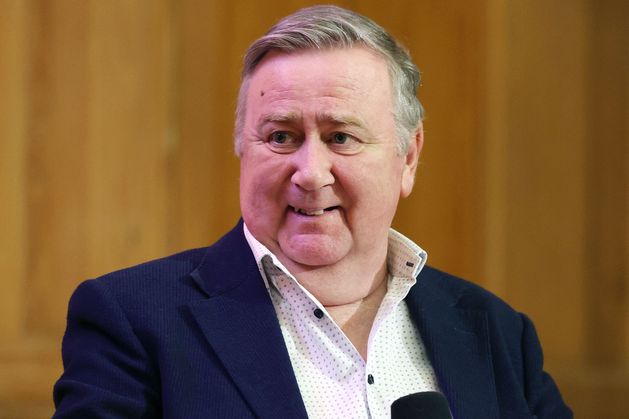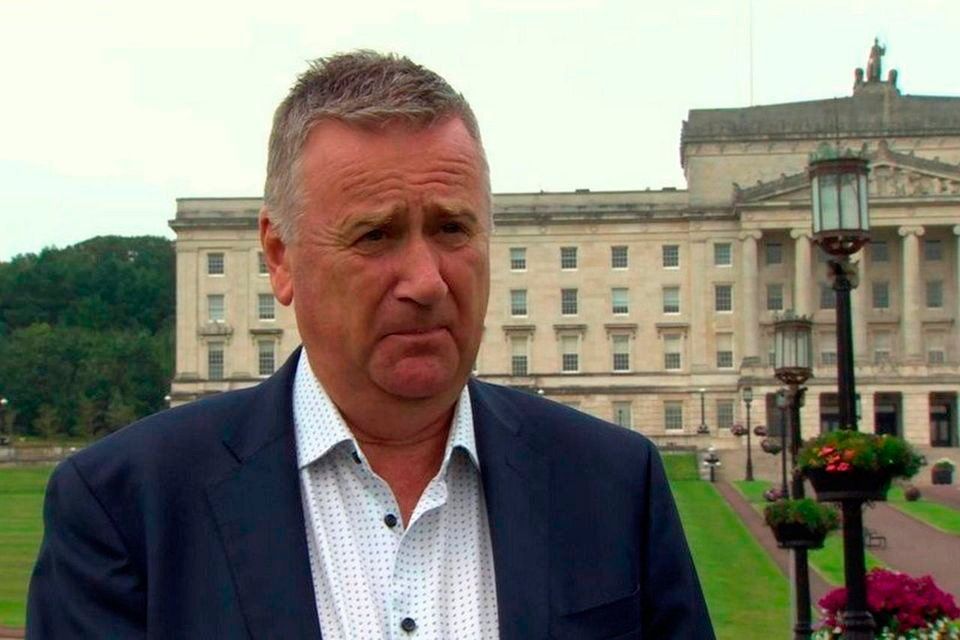The former BBC Northern Ireland political editor was not just a colleague and a mentor, but a friend.
“Would you be free to call in to see me this evening for a last chat?” he asked.
“How does 6-ish sound?”
All very matter of fact. No drama. No hyperbole. Just the facts.
His reporting was the same.
Yes, he had a wonderful turn of phrase, but he only used it when he felt it added to the story.
For example, when he broke news of the 1998 Good Friday Agreement, he did not need to say the contents — early release of prisoners, changes to the Irish constitution etc — were sensational, the facts simply spoke for themselves.
“A reporter should never get in the way of the story,” he often used to say.
Stephen Grimason
At the same time, he loved a scoop. Breaking news of the Agreement was the highlight of his career, but for Stephen himself it was not the moment he remembered most fondly.
For him, it was being recognised in Belfast one day by the footballer George Best.
George went over to HIM — not vice versa. Sport 0, Politics 1.
Although he was at the top of his profession, Stephen still had time for others.
In the mid-1990s, I was a political correspondent at the Belfast Telegraph. During this period, Stephen had an annoying habit of breaking news at 1pm on a Saturday on BBC Radio Ulster’s Inside Politics programme.
All the big political hitters of the time agreed to be interviewed by him on the programme, whether it be David Trimble, John Hume, Seamus Mallon, Ian Paisley, Peter Robinson, Gerry Adams or Martin McGuinness. British and Irish Government ministers were also regulars.
The Belfast Telegraph had an afternoon/evening edition in those days, and there was often a hectic lunchtime scramble to reflect the lines from the interviews before the last deadline.
“You’re ruining my Saturdays,” I complained to Stephen one day.
He explained that many of the interviews were pre-recorded at 10am on a Saturday morning, and from then on, he allowed me to come to the BBC and listen to them in the studio as they were being done. Like many other journalists, I owe him a lot.
BBC’s Gareth Gordon, a long-time friend, said Stephen was a “great, great journalist … but nothing quite became him like the way in which he faced death. Head on, no sentimentality”.
Last week, I arrived at his hospital bed at “6-ish” as requested.
Stephen knew the end was near. He said a few quick things about life and death, and then we talked politics. And then more politics. In between treatments, he had been studying the constituency boundary changes and looking at Stormont’s options for revenue-raising.
We talked until 10-ish.
I wish I had taken notes.
Like so many others, I am going to miss him.
Mark Simpson is a BBC News Correspondent

William Turner is a seasoned U.K. correspondent with a deep understanding of domestic affairs. With a passion for British politics and culture, he provides insightful analysis and comprehensive coverage of events within the United Kingdom.










